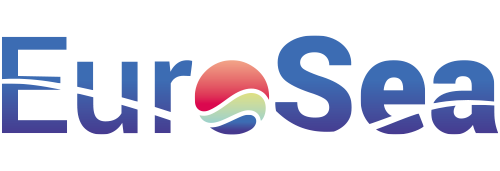
Description
As marine observation initiatives expand and diversify, the need for structured coordination, especially concerning metadata standards, becomes paramount. By integrating networks at both EU and global scales, there’s an increased emphasis on consistency, quality, and efficiency in marine data processes.
Impact During the Project
Enhanced Metadata Standards:
Traditional State: Previously, marine data might have been described and archived using varying metadata standards, depending on the network or the region. This inconsistency can lead to inefficiencies in data retrieval and interpretation.
Advancement: Harmonizing metadata standards ensures a unified way of describing marine data, regardless of the source. This enhances interoperability and simplifies data processing, sharing, and analysis.
Unified Best Practices:
Traditional State: Different networks or regions might have had their procedures and methodologies, potentially leading to disparities in data quality and approach.
Advancement: By adopting unified best practices, data collection, analysis, and dissemination processes are standardized, ensuring consistency and high quality across the board.
Operational Excellence of Eulerian Observatories:
Traditional State: Eulerian observatories, which refer to fixed-point observation systems in marine environments, have always been pivotal in capturing localized marine data.
Advancement: Achieving a Technology Readiness Level (TRL) of 7 denotes that these observatories have been rigorously tested in relevant marine environments. Their protocols, technologies, and methodologies are now mature and ready for broader deployment.
Impact Post Project
Integrated Marine Observational Network:
Traditional State: Marine observation initiatives might have operated in silos, each adhering to their standards and practices.
Advancement: With integrated coordination at the EU and global levels, there emerges a cohesive marine observational network, capable of sharing, analysing, and leveraging data more efficiently.
Capacity Development & Knowledge Dissemination:
Traditional State: Best practices, methodologies, and knowledge might have been confined within individual networks or regions.
Advancement: The integrated approach ensures a broader transfer of best practices and knowledge. This ongoing knowledge sharing fosters innovation, collaboration, and capacity development across the marine research community.
Advancement over and above State of the Art
Marine research and observation are witnessing a significant transformation. No longer are marine networks confined within their operational boundaries. By embracing harmonized metadata standards and best practices, the marine research community is ensuring that data is not just collected but is also described, shared, and interpreted with unparalleled efficiency. The advanced readiness of Eulerian observatories highlights the commitment to utilize the best tools and methodologies available. Through an integrated approach, marine research is poised to be more collaborative, informed, and impactful, ensuring that the vast expanse of our oceans is understood and preserved with the best knowledge and tools at our disposal.
Links and References
Link to D3.7 – WP3 network harmonization recommendations: https://eurosea.eu/download/eurosea_d3-7_network_harmonisation_recommendations-2/?wpdmdl=5532&refresh=650197c6373d31694603206
